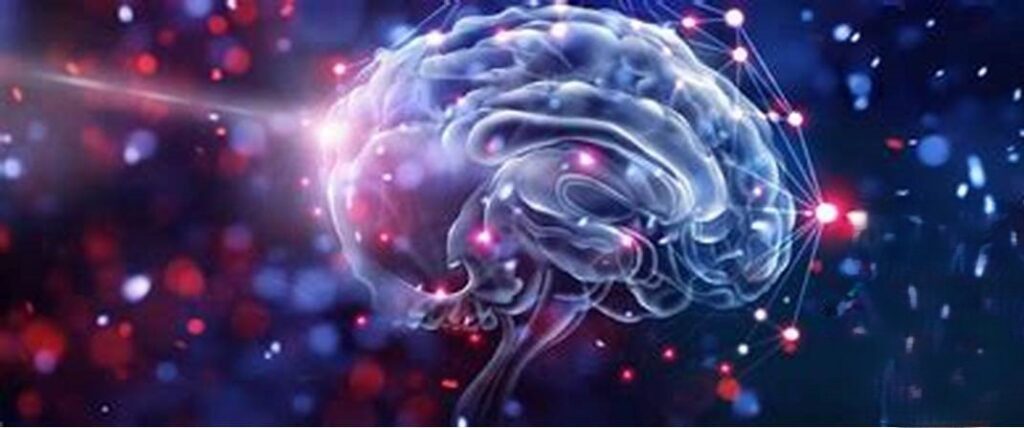
Significance of the Human Brain
The human brain is an extraordinary organ that plays a central role in our cognition, emotions, and behaviour.
It’s major functions are :
Cognitive Processing
Emotional Regulation
Motor Control
Sensory Perception
Memory Storage
Homeostasis
The human brain’s development is a remarkable journey from prenatal stages to adulthood. Conscious efforts, enriched experiences, and social interactions all contribute to its growth and adaptability.
Let us explore the conscious efforts that we can take to enhance the brain power that we have inherited by birth and which developed during our early childhood due to the efforts of our care givers.
Here we will cover the cognitive capabilities, memory, focus, concentration and mental and emotional balance as the main components of brain power and identify the ways in which these can be enhanced.
The seven key components that would help us increase our brain power and improve the quality of our life are:
1. Spiritual

Here we cover :
Meditation
Mantra Chanting and
Swadhyaya or Self-Enquiry
Meditation

Meditation is a practice that transcends religious boundaries. It involves stilling the mind, cultivating awareness, and connecting with deeper aspects of existence. Meditation leads to inner peace, self-discovery and spiritual growth.
Meditation offers a wealth of benefits and its impact on the brain is both fascinating and scientifically supported.
Let’s delve into the advantages, with a special focus on how it enhances brain power:
Improved Attention and Sustained Focus
Enhanced Brain Efficiency
Thickening of the Prefrontal Cortex
Syncing Brain Hemispheres
Slowing Brain Aging
Increased Innovation and Problem-Solving
Better Mental Health Following Trauma
In summary, meditation is a powerful tool for optimizing brain function, while also providing relaxation. It’s regular practice can yield remarkable results in the areas of mental clarity, stress relief and cognitive enhancement.
How do I get started with meditation?
Meditation is a wonderful practice that can bring calmness, focus, and clarity to your mind. Here are some simple steps to get started:
Create a Quiet Space
Choose a Comfortable Seating Position
Rest Your Hands
Tilt Your Chin Downward and Close Your Eyes
Set a Timer
Focus on Your Breath
Remember, meditation isn’t about achieving a thought-free state; it’s about cultivating awareness and presence. If your mind wanders, gently bring it back to your breath. Remain a witness to your thoughts. Over time, you’ll find greater peace and mental clarity. For better results meditate using the same asana, at the same time and at the same spot.

Mantra Chanting
Mantra chanting has been practiced for centuries across various cultures and spiritual traditions. Let’s explore how mantra chanting may influence brain function:
- Relaxation and Stress Reduction
- Decreasing Anxiety and Depressive Symptoms
- Attention and Concentration
- Brain Synchronization:
- Prefrontal Cortex Activation:
In summary, mantra chanting has multifaceted effects on mental health, including relaxation, reduced stress, improved attention and potential cognitive benefits. While the primary impact is on the mind and nervous system, these positive effects indirectly contribute to overall brain health.
Chanting Sanskrit Shlokas :
Spiritual growth, relaxation and concentration improves with chanting shlokas composed in Sanskrit which is an ancient language with complex grammar.
Chanting has a positive effect on brain power as it helps to stimulate the brain, makes neural connections and has a calming effect on the nervous system and energy centres or chakras.
Learn mantras and chant them correctly. Simplest is Om.
Chanting will have a different impact on different age groups :
For children, chanting will help to improve memory power.
Youth may experience improved attention and concentration.
Middle aged will benefit from reduced stress and anxiety.
Elderly folks may experience improved memory as well as reduction of depression and anxiety.
Swadhyaya

Swadhyaya, which means “self-study” or “self-enquiry,” is a profound concept rooted in ancient Indian philosophy.
Benefits of Swadhyaya for enhancing brain power :
You will get self realisation and liberation.
You will instantly be endowed with many qualities.
Four negative emotions like anger, pride, deceit and greed will be reduced.
Reduction in sensual pleasures.
All this will help you to gain focus and enhance brain power.
Please refer to : Spirituality And Brain Power – Mpyrean for more information on Spirituality and Brain Power.
2. Excercises

Regular exercise offers numerous benefits for brain health and improvement of cognitive function.
- Increased Blood Flow and Oxygen
- Hippocampus Growth
- Stress Reduction
- Improved Sleep
- Release of Growth Factors
In summary, exercise fuels the brain with oxygen, supports neural growth, and enhances mental well-being.
The hippocampus is a vital brain structure associated with memory, learning, and spatial navigation. It increases in volume with exercise, supports better memory and cognitive function.

Aerobic exercise offers remarkable benefits for brain health and cognitive function. Let’s explore how it enhances brain power:
- Increased Blood Flow and Oxygen
- Hippocampus Growth:
- A larger hippocampus correlates with better verbal memoryand cognitive abilities.
- Neurotrophic Substances and Neurotransmitters:
- Exercise stimulates the release of neurotrophic factors, promoting brain cell growth and connectivity.
- It also increases neurotransmitter levels, enhancing communication between neurons.
- Stress Reduction and Mood Improvement
- Reduced Inflammation and Oxidative Stress
- Tai Chi and Cognitive Function:
Tai chi, a slow, focused movement practice, has shown potential to enhance executive function (planning, problem-solving, reasoning) in older adults.
- Learning new skills during tai chi contributes to cognitive improvement.
In summary, regular aerobic exercise fuels brain health by increasing blood flow, promoting neurotrophic factors and reducing stress.
Brain Boosting Excercises

Boosting your brain health involves engaging in various activities that challenge your cognitive abilities. Here are some evidence-based brain exercises you can try:
- Jigsaw Puzzles
- Card Games
- Build Your Vocabulary
- Dance
- Learning a new skill
- Impart your skills to others
- Listen to music
- Explore new routes to reach the same destination
- Tai-Chi
- Focus on a single task without getting distracted.
Remember, brain exercises benefit people of all ages, so do what works best for you.
Please refer to : Excercises And Brain Power – Mpyrean for more information on Excercises and Brain Power.
3. Yoga
Basic yoga strengthens and maintains mental dexterity. Yoga is the most effective way to increase brain function. Your brain can malfunction as a result of stress and anxiety.
Yoga encourages healthy breathing patterns, which can help you relax your body while also energizing your intellect.
The yoga asanas listed below will help you broaden and declutter your mind and thus enhance brain power.

Yoga For Brain Power – 10 Effective Poses
- Padmasana (Lotus Pose)
- Vajrasana (Diamond Pose)
- Ardha Matsyendrasana (Half Spinal Twist Pose)
- Paschtimottanasana (Seated Forward Bend)
- Halasana (Plow Pose)
- Sarvangasana (ShoulderStand)
- Matsyasana (Fish Pose)
- Viparit Karni (Legs Up The Wall Pose)
- Mayurasana (Peacock Pose)
- Sirsasana (Headstand)
Please refer to : Yoga & Pranayama And Brain Power – Mpyrean for more information on Yoga and Brain Power.
4. Pranayama

Pranayama is a fundamental component of yoga that involves various breathing techniques. Pranayama helps detoxify and purify the body and mind thus improving physical and mental well-being.
In pranayama practice, we intentionally inhale, exhale, and hold our breath in different styles and lengths.
Here are some essential pranayamas for enhancing brain power:
- Nadi Shodhan or Alternate Nostril Breathing
- Kapalbhati or Skull Shining Breath
- Bhastrika or Bellows Breathing
- Sama Vritti or Square Breathing
- Dirgha Pranayama or Three-Part Breath
- Brahmari Pranayama or Bee Breathing
Pranayama strengthens the connection between body and mind, leading to physical, mental, and emotional well-being. It increases oxygen intake, promotes clarity of mind and inner strength.
Remember to sync breath movements with physical postures or asanas for optimal benefits.
Please refer to : Yoga & Pranayama And Brain Power – Mpyrean for more information on Pranayama and Brain Power.
5. Diet And Nutrition

Here are several vegetarian Indian foods that are not only delicious but also beneficial for enhancing brain power:
Walnuts
Almonds
Pumpkin seeds
Flaxseeds (Alsi)
Peanut Butter
Berries (Strawberries, Blueberries, and Blackberries)
Turmeric
Whole Grains (Brown Rice, Quinoa, and Oats)
Dark Chocolate
Chickpeas
and
Veggies like :
Spinach and Kale
Curry Leaves
Celery
Tomatoes
Pumpkin
Asparagus
Broccoli
Coloured Capsicums
Green Tea
Rosemary Tea
Water
Remember, a balanced diet rich in these brain-boosting foods can contribute to better cognitive health. Incorporate them into your meals regularly for optimal results.
Please refer to : Diet And Nutrition And Brain Power – Mpyrean for more information on Diet and Nutrition and Brain Power.
6. Sleep

Good sleep is crucial for enhancing brain power and overall cognitive function. Here are some key ways in which sleep benefits the brain:
- Memory Consolidation
- Cognitive Function
- Emotional Regulation
- Detoxification
- Neuroplasticity
- Hormone Regulation
Ensuring you get 7-9 hours of quality sleep each night can significantly boost your brain power and overall well-being.
Listed below are Sleep Requirements based on Age :
- Newborns (0-3 months): 14-17 hours
- Infants (4-11 months): 12-15 hours
- Toddlers (1-2 years): 11-14 hours
- Preschoolers (3-5 years): 10-13 hours
- School-age children (6-13 years): 9-11 hours
- Teenagers (14-17 years): 8-10 hours
- Young adults (18-25 years): 7-9 hours
- Adults (26-64 years): 7-9 hours
- Older adults (65+ years): 7-8 hours
Effects of Lack of Sleep on Brain and Body Functions :

Lack of sleep can have significant negative effects on both the brain and body
- Cognitive Impairment: Reduced alertness, concentration, and memory. It hampers decision-making, problem-solving, and emotional regulation.
- Physical Health: Increased risk of cardiovascular problems, weakened immune system, higher risk of obesity and type II diabetes.
- Mental Health: Linked to depression, anxiety, and other mood disorders.
- Daytime Functioning: Fatigue, irritability, and decreased performance in daily activities.
Tips for Improving Sleep Quality :

- Maintain a Consistent Sleep Schedule
- Create a Relaxing Bedtime Routine
- Optimize Your Sleep Environment
- Limit Exposure to Blue Light
- Be Mindful of Food and Drink
- Exercise Regularly
- Manage Stress
- Limit Naps
- Exposure to Natural Light
- Mind Your Sleep Position
- Avoid Stimulants
- Use Sleep Aids Sparingly
- Limit Alcohol Consumption
- Practice Gratitude
- Seek Professional Help if Needed
Implementing these tips can help you achieve better sleep quality and, in turn, enhance your overall well-being.
Please refer to : Sleep And Brain Power – Mpyrean for more information on Sleep and Brain Power.
7. Micellaneous Factors

Here are some miscellaneous factors that can enhance brain power:
- Social Interaction
- Novelty and Learning
- Music and Creativity
- Mindfulness and Stress Reduction
- Brain-Boosting Nutrients :
- Antioxidants
- Curcumin
- Green Tea
- Rosemary Tea
- Challenging Puzzles and Games
- Hydration – Staying hydrated is crucial for brain function.
Ayurvedic Medicines

Here are five Ayurvedic medicines that can help boost brain power:
- Brahmi (Bacopa monnieri)
- Ashwagandha (Withania somnifera)
- Shankhapushpi (Convolvulus pluricaulis)
- Gotu Kola (Centella asiatica)
- Guduchi (Tinospora cordifolia)
Tips from Divine Masters for enhancing your mental well-being :

Here we have provided profound wisdom nuggets from two renown spiritual masters that will help to enhance your happiness and thus your mental well-being.
Profound Revelation By Gurudev Shri Rakeshji to manage yourself.

The renowned Self-Realised Master and visionary Shri Rakeshji Jhaveri, reveals that we just need to manage our
- Smile
- Sleep and
- Self
We just need to manage the 3 S’s in our life.
- Smile: Is your smile consistent ?
- Sleep: If you have remained toxic the whole day, your sleep is the first thing that will suffer.
- Self: How do you process a situation ? All your happiness and sorrows don’t come from situations but how you process a situation. Simply meaning, how do you explain this situation to your buddhi ? Your behaviour depends on your emotions and emotions depend on thoughts and thoughts depend on how you explain a situation to yourself. Victory over yourself is the greatest victory.
Sadhguru's tip for increasing intellect and sharpness of mind

Sadhguru reveals that the only habit to tame the mind for which there is medical and scientific evidence today is that if you’re pleasant for 24 hours without a moment of anxiety, irritation, agitation, if you are just blissful for 24 hours, the sharpness of intellect could go up by 100 percent. Your body and mind functions way better medically and scientifically. Everything about you will change if you just remain very joyful.
In one way or another, if you experience discomfort five times a day, the effects last throughout the day. This isn’t a sign that something is amiss with you or the others in your immediate vicinity. It basically means that your mind is not listening to what you are trying to tell it.
Please refer to : Miscellaneous Factors And Brain Power – Mpyrean for more information on Miscellaneous Factors and Brain Power.
